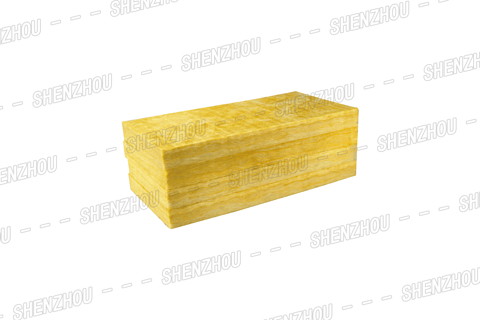
Introduction to the uses and advantages of insulation material rock wool board
5/16/20246 min read

Thermal insulation materials have always played a crucial role in the fields of construction and industry. Among them, rock wool board, as a new type of insulation material, has gradually gained market favor due to its unique performance and wide application range. This article will provide a detailed introduction to the scope of use of rock wool boards, as well as their advantages compared to other insulation materials, and provide examples of commonly used rock wool board specifications, dimensions, thickness, and density information.
Categories
Popular
Applications of Glass Wool Board:
Introduction to the uses and advantages of insulation material rock wool board
Interior Wall Compartments:
Enhances the functionality and aesthetics of interior spaces.
Ceiling Systems:
Provides effective insulation for ceilings, contributing to energy efficiency.
Insulation of Iron Sheet Air Ducts or Bellows:
Ideal for insulating ductwork, ensuring thermal efficiency.
Sound Absorption and Noise Reduction:
Reduces noise levels in machine rooms, creating a quieter working environment.
Exterior Wall Insulation:
Offers insulation for residential building exteriors, contributing to energy savings.
Glass Wool Insulation





Firstly, rock wool boards have significant applications in insulation and heat preservation. In the field of construction, rock wool panels are widely used for insulation and heat preservation in exterior walls, roofs, and partitions. Its excellent insulation performance can effectively reduce the energy consumption of buildings and improve living comfort. At the same time, rock wool board also has good fire resistance performance, which can effectively prevent the spread of fire and ensure the safety of buildings. In the industrial field, rock wool boards can be used for insulation of equipment such as pipelines, storage tanks, and stoves, reducing heat loss during operation and improving energy utilization efficiency.
In addition, rock wool boards have been widely used in the fields of ships and transportation. In ship construction, rock wool boards can be used for insulation and heat preservation in ship cabins, engine rooms, cargo holds, and other parts, improving the navigation performance and comfort of ships. In terms of transportation facilities, rock wool boards can be used for thermal insulation in train carriages, car carriages, tunnels and other parts, providing passengers with a more comfortable riding environment.
Compared with other insulation materials, rock wool board has the following advantages: firstly, rock wool board has the characteristic of being lightweight and thin. Compared with traditional insulation materials, it is lighter in weight and can effectively reduce the self weight of buildings and reduce the load on building structures. Meanwhile, rock wool boards do not take up too much indoor space, providing designers with greater flexibility. Secondly, rock wool board has good fire resistance and moisture resistance, which can effectively prevent fire and moisture damage to buildings. In addition, rock wool board also has excellent sound absorption and insulation performance, which can reduce the transmission of noise inside and outside the building, providing a quieter and more comfortable indoor environment. Finally, rock wool board is made of natural rock as raw material, free of harmful substances, and is a green and environmentally friendly material.
Next, let's learn about the commonly used specifications, dimensions, thickness, and density of rock wool boards. In the market, there are multiple options for the specifications and sizes of rock wool boards, with sizes of 1000mm x 600mm and 1200mm x 600mm being more common. These sizes are convenient for splicing and cutting during the decoration process, and can meet the needs of different architectural and industrial fields. In terms of thickness, the thickness of rock wool board is usually between 40mm-200mm, and the specific selection needs to be determined based on insulation requirements and actual usage. In terms of density, the density of rock wool board is generally between 80-200 kg/m ³ The higher the density, the better the insulation performance. According to practical application scenarios, different densities of rock wool boards can be selected to meet specific insulation needs.
Its unique performance and advantages make it an ideal choice to replace traditional insulation materials. The lightweight and thin characteristics make the installation process of rock wool board more convenient, while reducing the load on the building structure. The performance of fire resistance, moisture resistance, and sound absorption further enhances the safety and comfort of buildings.
In addition, the green and environmentally friendly characteristics of rock wool board also conform to the sustainable development concept of modern society. Using natural rocks as raw materials, without harmful substances, the rock wool board will not cause pollution to the environment during use. With the increasing awareness of environmental protection among people, the demand for rock wool boards in the market will continue to grow.
In practical applications, rock wool boards can be customized according to different needs. For example, in cold regions, thicker and denser rock wool boards can be chosen to improve insulation effectiveness; In hot areas, rock wool boards with moderate thickness and lower density can be chosen to reduce self weight and energy consumption. In addition, rock wool board can also be used in conjunction with other insulation materials to form a composite insulation system, further improving the insulation effect.
With the continuous progress of technology and the continuous expansion of the market, rock wool board will have more innovation and applications in the future. For example, by improving production processes and formulas, the insulation performance and weather resistance of rock wool boards can be improved; Meanwhile, by utilizing the lightweight characteristics of rock wool panels, more innovative building structures and designs can be developed.
In summary, rock wool board, as a new type of insulation material, has broad application prospects in the fields of construction and industry. Its unique performance and advantages make rock wool board a leader in the field of insulation. With the continuous development of the market and the increasing demand, rock wool board will undoubtedly play a more important role in the future.

Why Choose SHENZHOU Glass Wool Board?
SHENZHOU® Glass Wool Board not only meets the essential requirements of thermal insulation but also excels in sound absorption and noise reduction. Its adaptability to various settings, coupled with the convenience of construction and installation, positions it as a leading choice for architects, builders, and contractors.
In conclusion, the broad application prospects of SHENZHOU® Glass Wool Board make it a comprehensive solution for enhancing comfort, energy efficiency, and acoustic performance across diverse projects. Choose SHENZHOU® for insulation solutions that go beyond expectations.










About Us
Click the button below to get more information about us
Newsletter
Click to subscribe for more information
Follow Us
Contact Us
Address
Dacheng town, Langfang City, Hebei province, China
Phone
+86 185 03165 626


